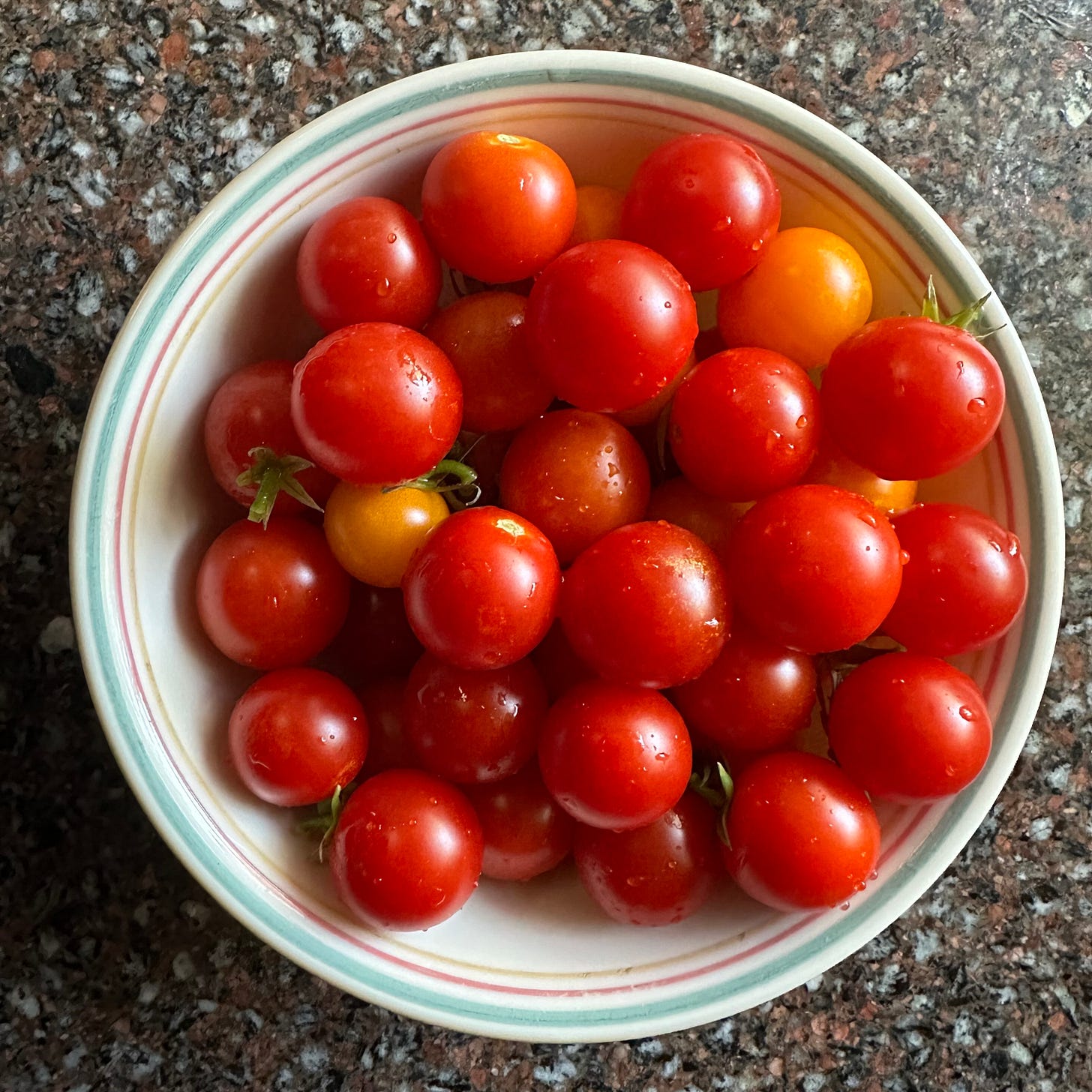A man reaps what he sows
Galatians 6:8 - Your harvest can be as small as a smile, as big as a changed life, and as everlasting as eternity.
Generated with AI ∙ July 31, 2024 at 12:14 PM
“Do not be deceived: God cannot be mocked. A man reaps what he sows. Whoever sows to please their flesh, from the flesh will reap destruction; whoever sows to please the Spirit, from the Spirit will reap eternal life.”
Galatians 6:7-8 NIV
Back at the beginning of June, God pointed me to Galatians 6:9-10. Today, He nudged me to the two verses just before those. Out of well over 900 devotionals, these are the only two times He has chosen to lead me towards Paul’s Epistle to the Galatians.
God uses the principle of sowing and reaping any times in His Word. It makes sense; people in Old and New Testament times understood where their food came from, and the concept of sowing seeds, tending the crops, and eventually harvesting a crop was familiar to everyone. Paul is reminding the people of Galatia that their giving to the church is like planting seeds. Whatever they sow in giving to the church, they will eventually reap in rewards from God.
What does Paul mean when he says “God cannot be mocked”? Some people may have felt that sharing their blessings with a ministry was a waste. That is a selfish attitude that mocks God’s generosity towards those who give of their time, treasure, and talents. Martin Luther said of these words, “Be careful, you scoffers. God may postpone His punishment for a time, but He will find you out in time, and punish you for despising His servants. You cannot laugh at God.”1
The principle of sowing and reaping isn’t just applicable when giving to churches and ministers; it’s applicable to life in general as well. We get out of our lives what we put into them. We won’t always reap good things when we do good or give generously, nor will we be damned for being frugal givers. Paul is simply trying to make the point that in the eternal view, we must devote some of our resources to godly purposes as the Lord will reward us.
Continuing with the principle of sowing and reaping, Paul goes on to say that “Whoever sows to please their flesh, from the flesh will reap destruction; whoever sows to please the Spirit, from the Spirit will reap eternal life.”
We do reap what we sow — a farmer sowing wheat seeds would not expect to see beans coming up in his fields. Likewise, if we sow to please the flesh — expending our resources on more food and drink than we need to sustain ourself, as an example — we’ll reap destruction in terms of injury to our physical bodies.
Tomatoes from our first harvest of the year. Photo © 2024, Steven Sande
To a farmer, sowing seeds has additional benefits. A single tomato seed creates a plant that produces many tomatoes… each of which contains many more seeds that can each create a new tomato plant. Sowing even a little can produce an exponentially larger harvest down the road. For followers of Jesus, sowing to please the Spirit is similar, as we will reap eternal life from even a little generosity in giving.
Have you sowed a seed of the Spirit recently? It can be something as simple as being genuinely nice to someone who isn’t have a very good day, tithing to your church, or supporting a charitable organization helping the underserved. Your harvest can be as small as a smile, as big as a changed life, and as everlasting as eternity.
Heaven On Wheels Daily Prayer:
Father in Heaven, remind me to never sow seeds from my sinful nature, as the crop they produce is withering and offensive. To keep me from reaping destruction, turn me from investing my time, treasure, and talents in the deceitful things of this world. Instead, help me to put my efforts and possessions into sowing to the Spirit, living generously and righteously so I will reap eternal life. I ask these things in the name of Jesus my Savior, AMEN.
Scripture quotations taken from THE HOLY BIBLE, NEW INTERNATIONAL VERSION®, NIV®. Copyright © 1973, 1978, 1984, 2011 by Biblica US, Inc.®. Used by permission.
Luther, Martin "A Commentary on St. Paul's Epistle to the Galatians" (translated by Theodore Graebner, D.D.) (Old Tappan, New Jersey: Fleming H. Revell Company, 1953)




